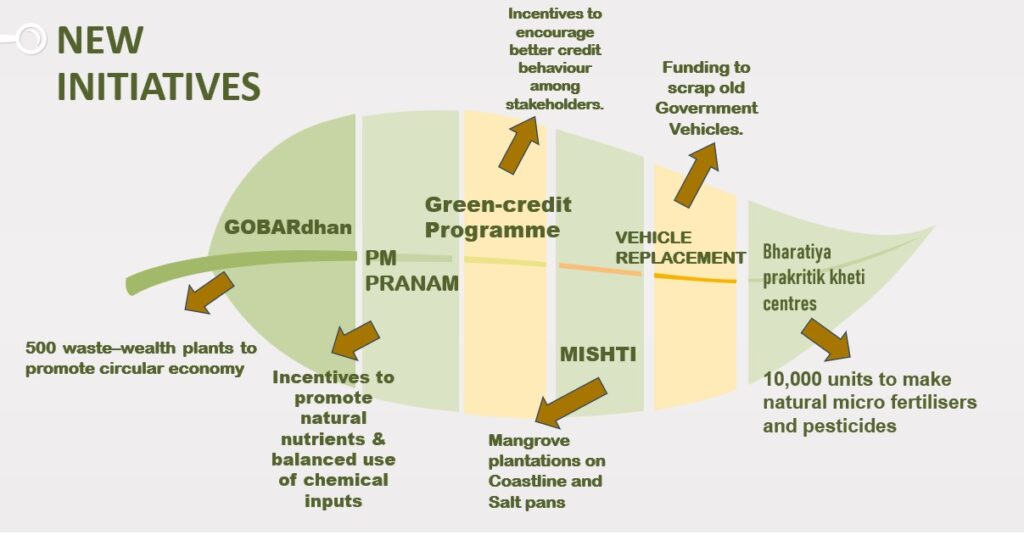-Parvathi Sivam & Malavika Menon | February 1, 2023
Rs.35,000 crores allocated for an energy transition from fossil fuels to renewable energy
Finance Minister Nirmala Sitharaman emphasised “green growth” as one of the seven priorities in the Union Budget 2023-24.
The National Green Hydrogen Mission, which was launched before the Budget, with an outlay of Rs.19,700 crore is expected to produce 5 million tonnes of green hydrogen by 2030.
The Finance Minister, in her Budget speech, said that the mission will reduce the country’s dependence on fossil fuel imports and make it a leader in this sunrise sector.
“It was quite disappointing for green hydrogen manufacturers as no production-linked incentives were introduced for electrolysers used for green hydrogen manufacturing,” said Vibhuti Garg, energy economist and director at Institute for Energy Economics and Financial Analysis.

Sitharaman introduced a slew of green initiatives to steer India towards net zero carbon emission by 2070. The Budget’s incentivising of the transitionto a green economy comes at a time when India has been identified as one of the countries that will be most “economically harmed” by climate change, according to the Intergovernmental Panel on Climate Change.
The Budget has allocated Rs.35,000 crore for priority capital investment towards energy transition and security to the Ministry of Petroleum and Natural Gas. A 13-gigawatt interstate renewable energy transmission system for evacuation and grid integration from Ladakh will be constructed with an investment outlay of Rs.20,700 crore including Central support of Rs.8,300 crore.
A battery energy storage system with a capacity of 4000 MWH (megawatt hour) will be supported with viability gap funding along with funding for the bund storage,a facility that prevents toxic leakage.
To enhance green mobility, customs duty exemptions were increased for the import of parts required to manufacture lithium-ion used EV batteries. The government has also exempted GST on compressed natural biogas.
